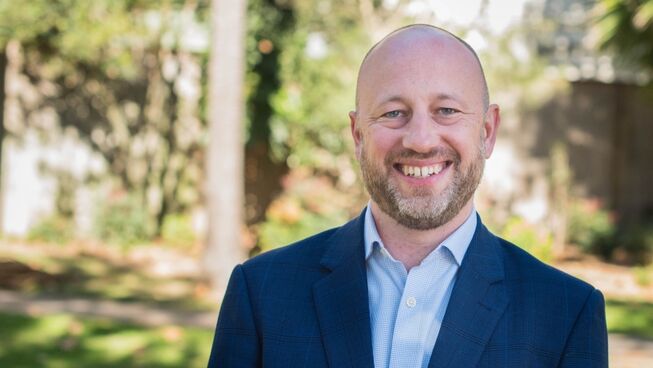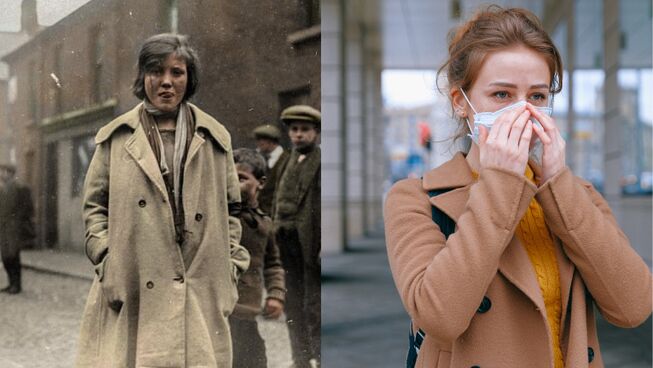
I have spent the past six weeks travelling around Australia, running City Bible Forum’s annual Life@Work conference – a conference for Christians in the workplace. The theme of the conference this year was “Unmasked”, exploring how we might reveal more of who we are in the workplace to our colleagues, and not just our strengths.
However as the weeks progressed the conference theme took an unexpected twist. As fear around the coronavirus increased, talking about masks began to have a whole new meaning.
Being exposed (pardon the pun) to our nation at this time has been eye-opening. I’ve spent the best part of the past six weeks in and out of the nation’s six major airports, checking in and out of hotels, washing hands in public toilets, visiting churches, and of course running conferences where large numbers of people were gathering. To say that Australia is gripped by fear is not overstating it. As the weeks progressed the warning signs wherever I travelled increased. Not to mention, no matter what city I was in, every supermarket was sold out of toilet paper.
All the while workplaces began adopting WFH (work from home) policies where possible. I returned from one trip to find my neighbours quarantined after they had been sent home from work; one of their friends had tested positive to coronavirus.
What are we to make of all this? There are many reflections we could make as Christians, but here are four:
1. Be characterised by love not fear
As I mentioned above, our nation is characterised at the moment by fear. And there is a sense in which it is right to be cautious and concerned. It is unwise and unloving to be negligent and indifferent in the face of real problems. And coronavirus is a real problem.
But while right concern should characterise us, fear shouldn’t. Christians are a people who rest in a sovereign God, who holds all things in His loving hands. Our future (and the future of the whole world) is under His control. Brothers and sisters, rest in that, and find peace in the midst of worry.
If we should be characterised by anything it should be love. “Perfect love drives out fear” (1 John 4:18). Knowing that we are loved and are no longer under the wrath of God, but under His perfect love should drive fear from the hearts and minds of all believers.
2. Move towards, not away from the sick and needy
And this leads me to my second reflection. As love characterises us this should cause us to move towards, not away from the sick and needy. The human heart constantly bends itself towards self-protection, and selfish action. But not a heart renewed by the Spirit. The heart of the believer puts the needs of others before their own.
Many of us would be familiar with the powerful witness of the early church, not so much through their words, but through their deeds of love for those suffering, sick and destitute. In the face of widespread sickness and death they were known for caring for and burying not only their own dead, but the dead of “pagans” too.
Of course there is a place for wisdom, heeding the advice from government and health authorities, so that we might care for ourselves...in order to be well and able to care for others.
What might it look like for the church today to bear witness to the power of the Gospel in this way in the face of coronavirus? Let me encourage you and your church to consider that question specifically for your neighbourhood, so that by our loving deeds we might bear witness to our God of love.
3. The missional field returns to the village
My job with City Bible Forum means my colleagues and I work hard to reach those who travel from their homes to workplaces around the country each day with the Gospel. But as coronavirus spreads and more and more workplaces encourage people to work from home it means the mission field might shift a little.
Let’s be alert to this; the potential for the mission field to return to the village. This shouldn’t change our enthusiasm for workplace evangelism – many issues, work challenges, and joys will stay the same – nor the kind of things we might seek to speak to our colleagues about. If anything it might lead to an even more fruitful season for workplace evangelism. As the unspoken confines of the physical workplace are removed we might find our colleagues (or our neighbours also working from home) that little bit less resistant to matters of life, faith and spirituality. Let’s pray that this might be the case!
4. Hold out hope
Finally to those characterised by fear and hope-less-ness let’s be bold in holding out the hope of the Gospel.
This morning as I worked from home and conducted all my meetings for the day online, I stepped outside at one point to empty a bin and bumped into another neighbour (I’m telling you, neighbour interactions are at an all time high for me!) Without me raising it, he said to me, “There’s a lot of worry about at the moment with this coronavirus”. I’m ashamed to say I didn’t say much more than agree with him.
But of course we do have so much more to say than this! The Apostle Peter tells us that as we live lives characterised by hope questions will inevitably come, enquiring where our hope comes from. In those moments be encouraged to be truly “unmasked”, and give the reason for the hope that you have, a hope desperately lacking in our nation at the moment, but being looked for by many.






